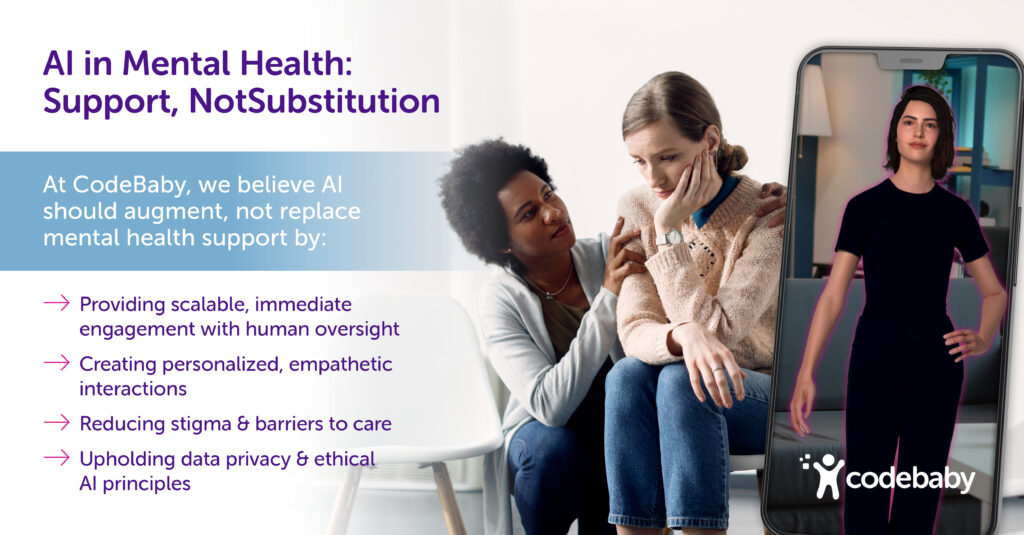Mental health care is at a crossroads. Demand for services has never been higher, yet access remains a persistent challenge. From long waitlists to provider shortages, the system is struggling to keep up. This has led many to ask: Can AI help?
A recent article, AI’s Potential to Revolutionize Mental Health Care—With Risks, explores how AI is beginning to revolutionize mental health care—offering solutions that expand access but also raising concerns about depersonalization and ethical risks. The reality is that AI is not a replacement for human therapists, nor should it be. But what if it could bridge the gap, providing support in ways that enhance—not replace—human connection?
Imagine someone experiencing anxiety late at night—too overwhelmed to call a crisis line lbut needing immediate reassurance. An AI-powered avatar could step in, offering calming techniques, answering questions, and guiding them through evidence-based coping strategies. Unlike static chatbots, CodeBaby’s avatars use human-like expressions and conversational AI to create a more engaging and supportive experience.
But here’s the key: AI should never replace human mental health professionals. Instead, it should extend their reach—offering on-demand support while ensuring that individuals can escalate to a real therapist when needed.
AI-powered mental health tools must be built with ethics and empathy at their core. At CodeBaby, we prioritize:
AI is only as good as the human values it upholds. Mental health care is deeply personal, requiring trust, nuance and genuine emotional understanding. The best AI solutions don’t replace human connection—they enhance it.
At CodeBaby, we see a future where AI avatars help extend mental health support, making care more accessible, more empathetic, and more engaging—without losing sight of the human touch that makes it meaningful.